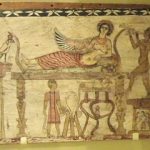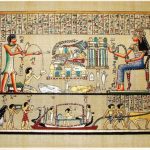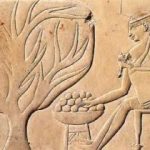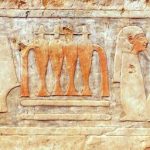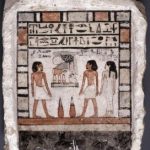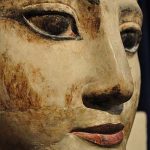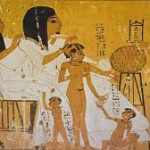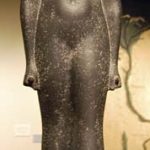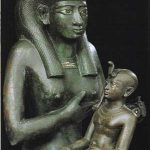Ancient Egypt had one of the most progressive civilizations for women. The culture believed that happiness and joy were the goals in life and that family and home were important. Women in ancient Egypt had more rights than in other cultures of the time and were considered equals to men in many ways.
In many civilizations that existed during the time of ancient Egypt, women were considered to be of less value than men and in some cases were little more than domestic servants that cared for the children or property. Ancient Egyptian women were regarded as almost equal to men and were important in running the daily household, raising children and contributing to business.
In ancient Egypt women, poor women were not always educated but the middle class and wealthy families did send their girls to school. There are records that show some women even became physicians, so the opportunity was there for women to be well educated. Women in ancient Egypt also had rights to sign contracts, own property, act as a witness in court and even start divorce situations.
The kings of ancient Egypt were the pharaohs and in almost all cases were always men. This was passed down from father to son. Only in a few special situations were women allowed to be pharaoh. The Egyptian people preferred to have a woman of royal blood ruling the kingdom rather than a male who did not have royal blood. Most ancient Egyptian women didn’t have outside work, but those that did work outside the home earned the same pay as the men.

Married women in ancient Egypt that were not part of a royal household were called by the title “mistress of the house”. This means that she was in complete control to make sure everything ran properly on the day to day events and needs. Wealthy families and the royal family would have servants that helped with the duties. Women were not considered ‘property’ of either their husbands or their fathers, as they were in other cultures.
The process of marriage in ancient Egypt often included a ‘pre-nuptial’ contract. This usually stated that everything the woman brought to the marriage in the way of property would always belong to her. This was important in the case of divorce. Women could also start divorce proceedings, and in that case, she would take her belongings with her or given equal value at the end of the marriage.
A majority of women in ancient Egypt were of the peasant class and worked with their husbands. When the husband had to leave for a trip, the wife would run the business as well as the home.

Most of the musicians and dancers of ancient Egypt were women. There were many religious temples that only allowed female musicians. There were many occupations that women held: perfume-makers, acrobats, singers, dancers, artisans and musicians. Women of higher class or noble birth could also be a priestess in the religious temples that were devoted to their gods and goddesses


